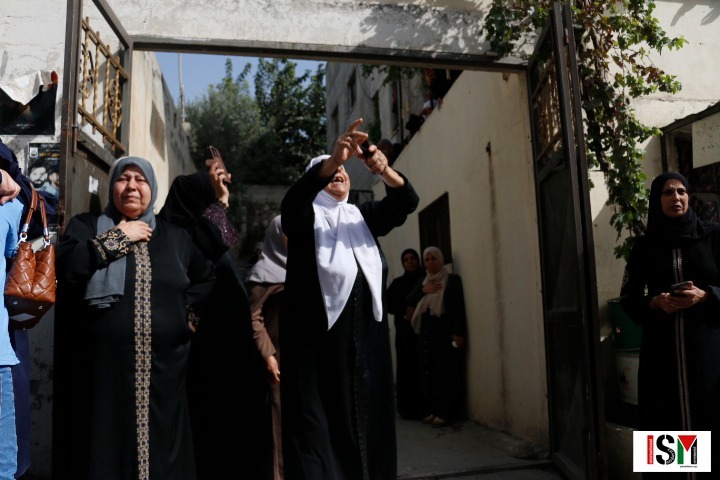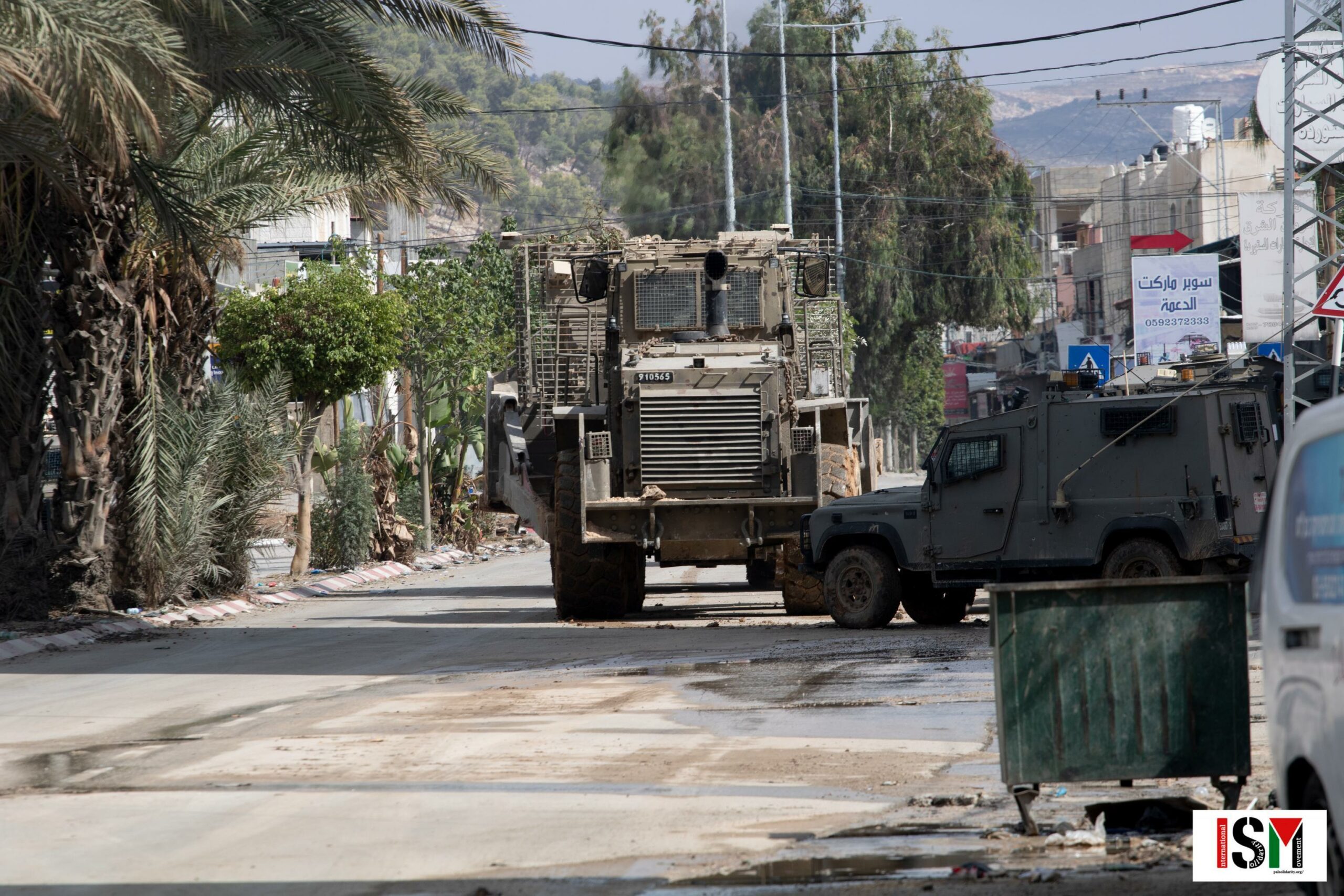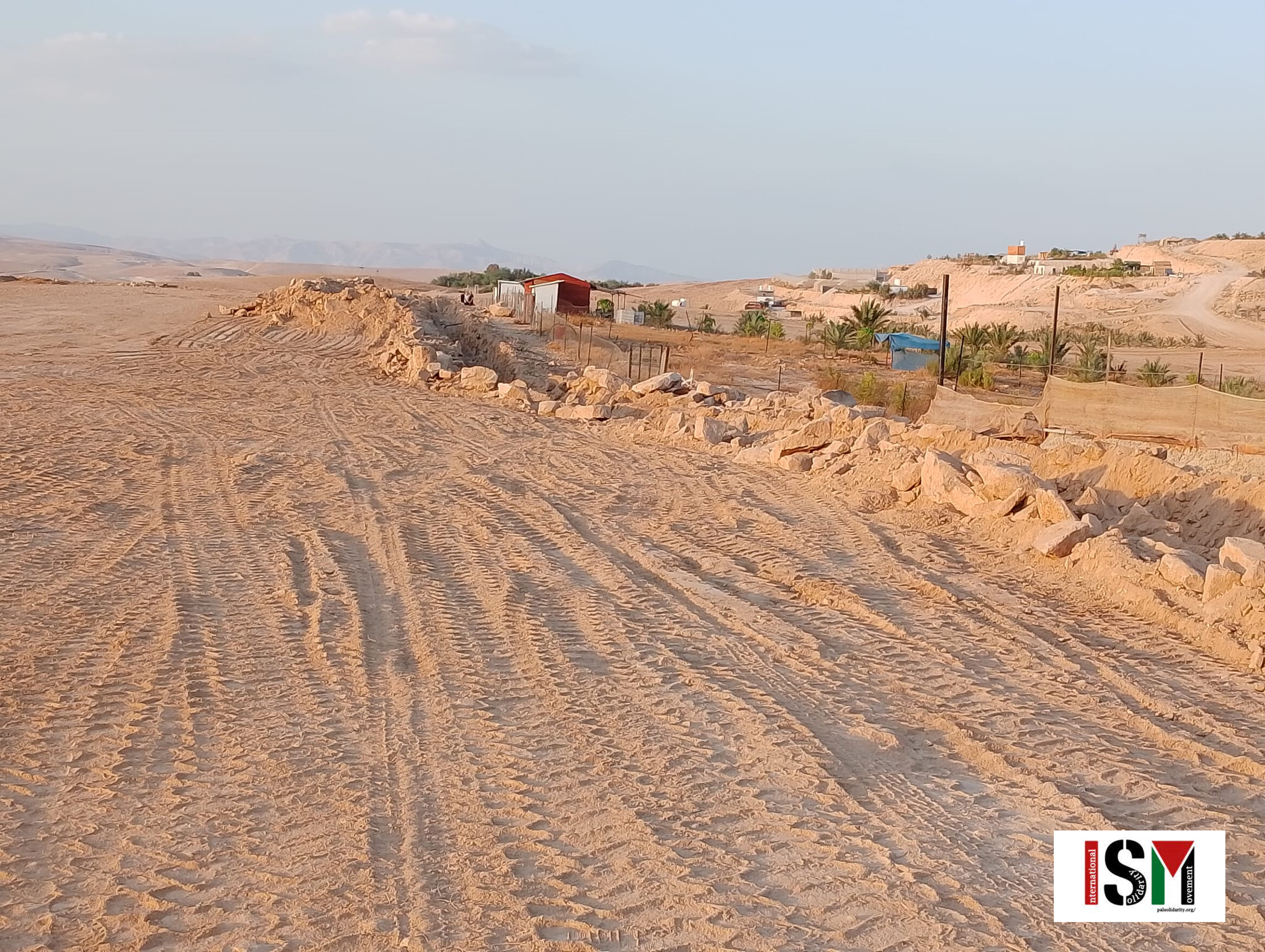-
Israeli crimes around the clock in the West Bank
22 October 2023 | International Solidarity Movement | Zawata by Diana Khwaelid Zawata town-Nablus. On the evening of Sunday, 22-10-2023, the Israeli Occupation Forces (IOF) stormed the town of Zawata, northwest of the city of Nablus. The residents of the town initially spotted Israeli special forces near the town’s cemetery. The Israeli occupation forces […]
-
A new massacre in Nour Shams camp, Tulkarm
19 October 2023 | International Solidarity Movement | Tulkarm By Diana Khwaelid The Israeli occupation forces launched a major military assault on the city of Tulkarm, especially on the Nur Shams refugee camp. A curfew was imposed throughout the city for at least 30 continuous hours, and Israeli snipers were deployed in more locations […]
-
Land injustice in the Jordan Valley and a call for action
21 October, 2023 | International Solidarity Movement | Jordan Valley The ISM visited the land of Ahmed, a resident of the Jordan Valley. Ahmed’s land falls in both Area A (under the Palestinian Authority control) and Area C (under civil and military Israeli occupation). He has a house and palm plantations on the “A side”, […]
Action Alert An Nabi Saleh Apartheid Wall Arrests BDS Bethlehem Bil'in Cast Lead Demonstration Denial of Entry Ethnic Cleansing Farmers Gaza Global Actions Hebron House Demolition International law Israeli Army Jerusalem Live Ammunition Nablus Ni'lin Prisoner Ramallah Rubber-coated steel bullets Settlement Settlers Settler violence Tear-Gas Canister Video



